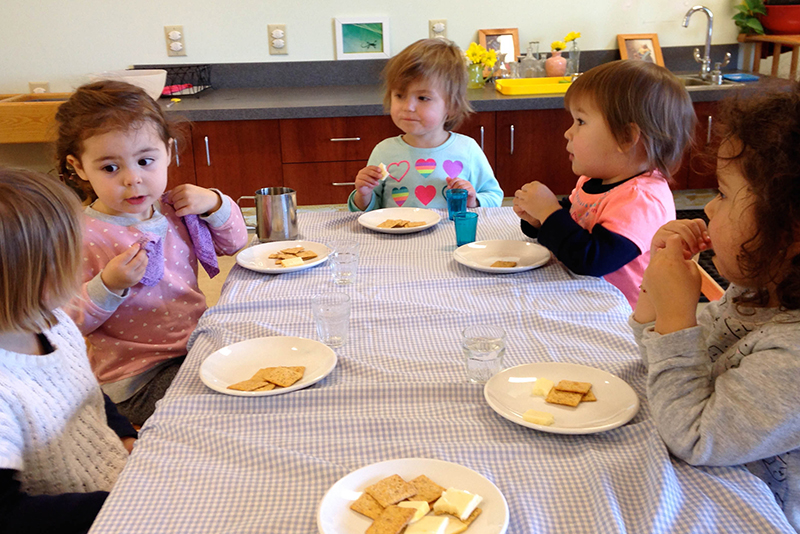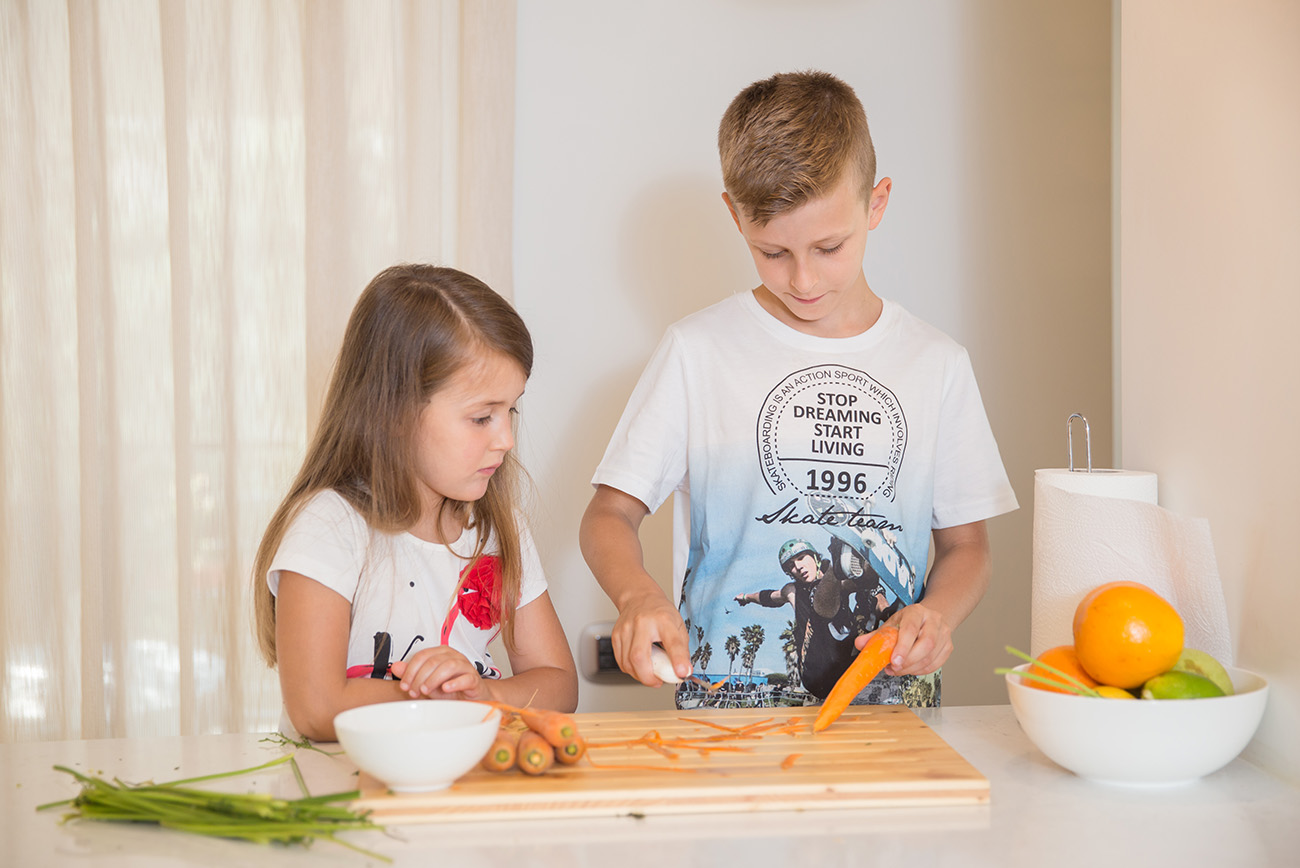One of Montessori’s fundamentals is to support a child’s independence. We are raising adults, not children. Our job as parents (and parent support systems) is to guide our children to complete independence. Little by little, day by day, we help our children develop skills and take on more responsibility until they can run at full speed on their own two feet.
Unfortunately, it is often easier for us to do skill-building jobs ourselves or hire someone to do it, than to teach our children these skills. If we don’t teach skills how can we expect our children to act with responsibility, or “respond with ability” when opportunity knocks?
When we allow our children to be coddled too long, we help create adults without clear direction and who have a failure to take on the challenges of adulthood.
A three-year old is able to do a multitude of tasks independently when given the tools and environment to do so. Three- year-olds should be able to dress themselves, get themselves a drink, fix a simple snack, wash hands and face, brush teeth, and much more. Let’s see how:
- In order to dress themselves children require several considerations. Clothes should be easy to put on and off, for example, t-shirts and pants with no zippers or buttons. Shoes with Velcro fasteners are helpful for self-dressing, though for five- year-olds shoelaces to learn to tie are important. Tags in back of clothing can help avoid backwards dressing. Sets of clothes grouped together help choosing an outfit easier. Low shelves or hanging rods help a child get clothes without adult help. Of course, a hamper or basket helps establish a habit of putting dirty clothes away and not on the floor.
- Children can pour themselves a drink of water if glasses are placed in a low cabinet and a small pitcher of water is available on a tray placed on a low table. A child-sized table in your kitchen with a pitcher of water available along with a lesson or two on how to pour will be of great help to your child.

- Preparing a snack or sandwich are other activities that children can do in their quest for independence. Small jars of crackers on low shelves can help your child prepare his or her snack and eat it at the child-sized table in your kitchen. Peanut butter in small jars (think pimento jars) and a small canape? knife can help your child make peanut butter crackers or a sandwich. Place a slice of bread in a sandwich bag or plastic sandwich container for easy availability.

- A step stool in the bathroom or kitchen can help your child wash hands and face, as well as brush teeth independently. Washcloths work as child-sized hand towels, and a basket full of washcloths by the sink can make hand washing inviting.
Help your child attain independence by providing tools and an environment that promote independence. Be an adult raising an adult.


